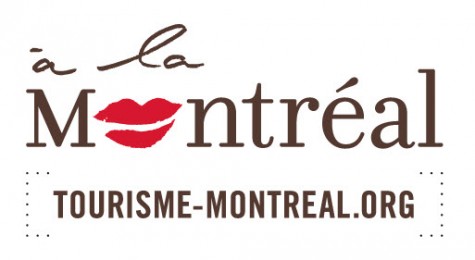
(cc) François Proulx
VIe Congrès (2015)
With previous conferences held in Paris and Amsterdam, we are pleased to announce that Montreal will be host to the 6th Annual IIAPC Conference taking place August 19th, 20th and 21st 2015. We will welcome participants at the Hyatt Hotel, in the heart of the Quartier des Spectacles, with its sunny terraces, international cuisine and direct access to Montreal’s famous underground city.
Theme
This year’s conference will explore a topic of urgent importance, with the potential for significant consequences in the long term: “Personalized Medicine and Interdisciplinary Issues”. The conference will be a bilingual event organised under the auspices of the Faculties of Medicine, Pharmacy and Law of the Université de Montréal, in a clear demonstration of Quebec’s openness toward interdisciplinary approaches to personalized health care. Quebec’s Chief Scientist, Dr. Rémi Quirion, will deliver the opening address. The conference benefits from the scientific initiative brought by Dr. Pavel Hamet, Quebec’s leader in predictive genomics.
Personalized medicine brings forth issues that transcend disciplines, but also necessitates a unified approach on the fundamental question: How to best benefit from innovations in genomics in a context of biomedicine, as a science serving humanity, without engendering power inequities, or not repeating past mistakes, and doing so while promoting an integrated approach inclusive of many interested disciplines. A final roundtable, co-moderated by Michel Rochon (Radio-Canada) and Daniel Weinstock (McGill) will provide an overview.
Areas of interest
The conference will explore recent developments in four areas of interest:
- Biomedicine;
- Pharmaceutical sciences;
- Law;
- Interdisciplinary and transversal challenges.
Please note that the conference is accredited by three of Quebec’s professional orders: the Collège des médecins, the Ordre des pharmaciens, and the Barreau du Québec – for further information, please see the « Program » section of this website.
personalized health and biomedical issues
For many years now, the scientific innovation stemming from the study of genetics has been perceived as the key to revolutionizing biomedical science. Personalized health, or rather, the idea of receiving treatment adapted to your genotype is a medical aspiration. This approach has allowed us to increase our understanding of the interactions between genetics and environmental or external factors. It has created a change in the field of medicine by promoting predicting and preventative approaches which are more personalized and focused on participative approaches (« 4P »), etc.
The developments in the field of pharmacogenomics have been a great source of enthusiasm amongst scientists as well. With a rising number of results showing that certain sub groups of people possess physiological susceptibilities to certain molecules, the use of medications is being refined and becoming more sophisticated, allowing a transition from the widespread use of large scale medication (blockbusters) to pharmaceutical treatments which are more targeted and effective. With this approach, we can also expect to see a decrease in side effects from medication, thanks in part to the development of biomarkers or preliminary testing which are great tools in helping to make sound decisions about therapeutic treatments.
PersonAlized health and JUDICIAL, PHILOSoPHICAL AND human sciences issues
The various disciplines and actors position themselves differently on the issue of personalized medicine. The idea of equality and human rights, held in such high regard in present-day modern law and Western philosophy, is historically built in opposition to both labelling and the creation of a hierarchy based on biological differences. Genome sequencing, DNA microarrays, genetic testing and interventions on human genetics have generated increasing concern from an ethical and judicial standpoint. Draft legislation and protocols are put in place to protect people and their human rights in the face of such medical ambitions, which can appear to be a “threat” from this different disciplinary perspective. With increasing humanist fears being expressed, anthropologists have adopted the ideology of the human as machine and the doctor as mechanic: « d’homme-machine et du médecin-mécanicien » (Gilles BIBEAU, « Entre génomythe et géno-destin. Les défis de la nouvelle médecine prédictive », Argument. Politique, société, histoire, vol. 6, no. 2, Printemps-été 2004, p. 2). Meanwhile, the participative element of personalized medicine ties in harmoniously with the professional authority of a contractual nature we are witnessing in the field of human sciences: from social work to psychology, and also including the educational sector, we are seeing a new approach to professional intervention, which is more efficient and effective because of its more participative, collaborative and contractual approaches and the importance placed on shared independence and empowerment, which encourage clinical adherence to the goals of the intervention.
PERSONALIZED HEALTH AND INTERDISCIPLINARITY
Interdisciplinarity, just like multi- and transdisciplinarity, is very much in vogue. At its very core, interdisciplinarity unites various disciplines which are usually studied separately. A seemingly simple concept, the movement is a subject which has caused varied reactions and has been written about frequently. Some see this as a simple open-mindedness, as old as time, easy to implement. Others see it as a new scientific perspective, in reaction to the overspecialization of practitioners which has been the norm for the last century, and difficult to put into practice because it demands particular skill. Whatever the case may be, almost all authors see it as the future of science, but it is too often set back by traditional thinking and force of habit within the university milieu, with medicine and pharmacy on one side of the spectrum and social sciences and law on the other. With this innovative conference, strongly focused on a rare interfaculty collaboration, the IIAPC and the University of Montreal, proud partners of the event, are demonstrating open-mindedness in the face of issues raised by new knowledge. The innovative science of personalized medicine is of interest for a multitude of disciplines, areas of expertise and professional practices. Informed decisions on the matter require a global perspective as well as cutting edge knowledge. This is the advantage of a conference which, at its core, will highlight the interdisciplinary issues raised by a personalized approach to health care, and the potential impact of this approach on the pharmaceutical life cycle.
This content has been updated on 16 December 2018 at 13 h 29 min.
